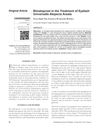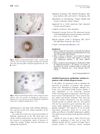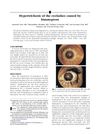Promising Alternative Clinical Uses of Prostaglandin F2α Analogs: Beyond the Eyelashes
January 2015
in “
Journal of The American Academy of Dermatology
”

TLDR Prostaglandin F2α analogs show promise for treating certain types of hair loss but need more research for other skin conditions.
The 2015 review article examined the dermatological uses of prostaglandin F2α (PGF2α) analogs beyond their known side effects of hypertrichosis and hyperpigmentation in glaucoma treatment. The analogs were found to be promising for treating androgenic alopecia, with a study of 16 men showing increased hair density, and chemotherapy-induced alopecia, with a study of 20 patients showing improved eyelash length and thickness. Mixed results were reported for alopecia areata, with some studies indicating no significant hair regrowth and others suggesting benefits when combined with corticosteroids. Although no controlled studies were available for vitiligo treatment, case series reported some repigmentation. Four clinical trials were registered to investigate bimatoprost for androgenic alopecia, with three completed and one recruiting at the time of the review. The review concluded that while PGF2α analogs have potential for androgenic alopecia and chemotherapy-induced alopecia, more research is needed to confirm their efficacy for alopecia areata, vitiligo, and other hypopigmentary disorders.
















